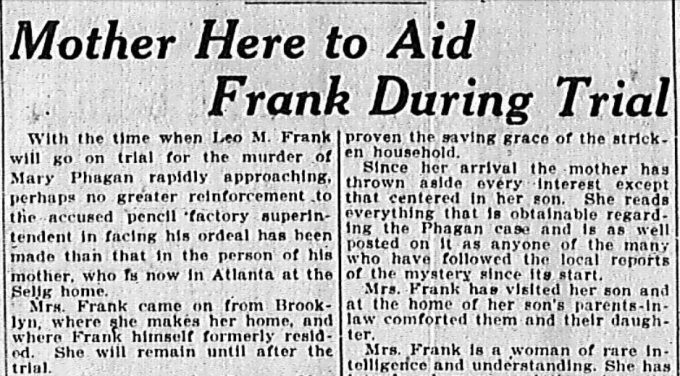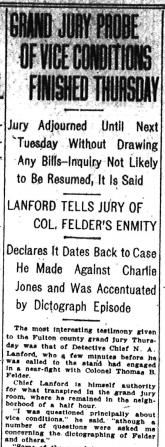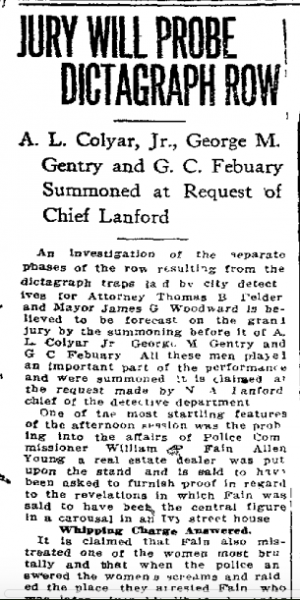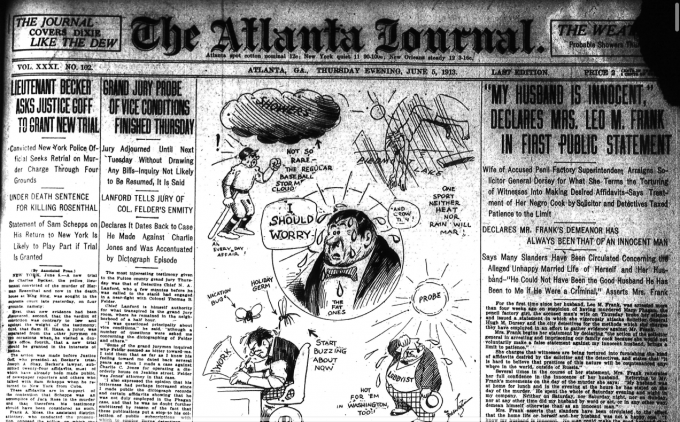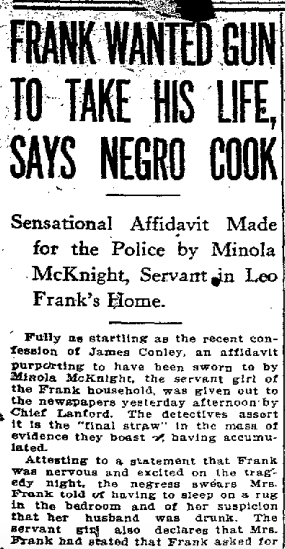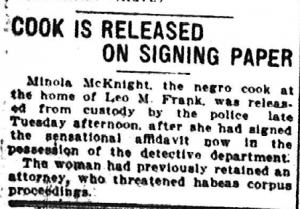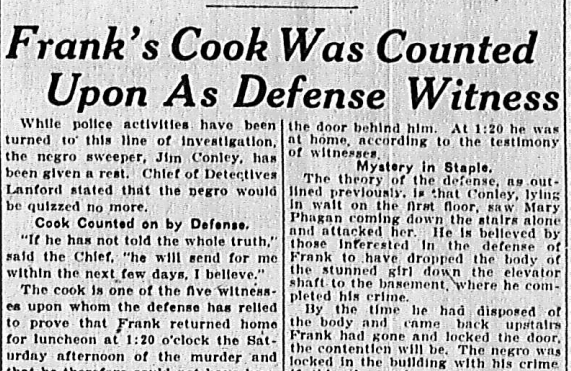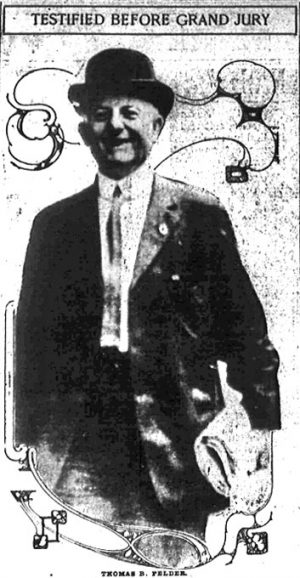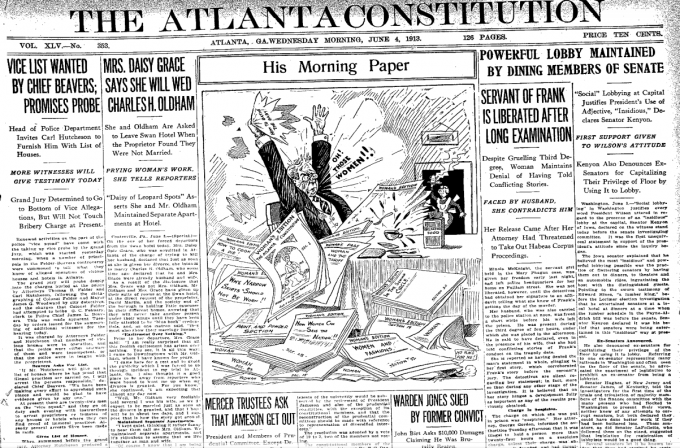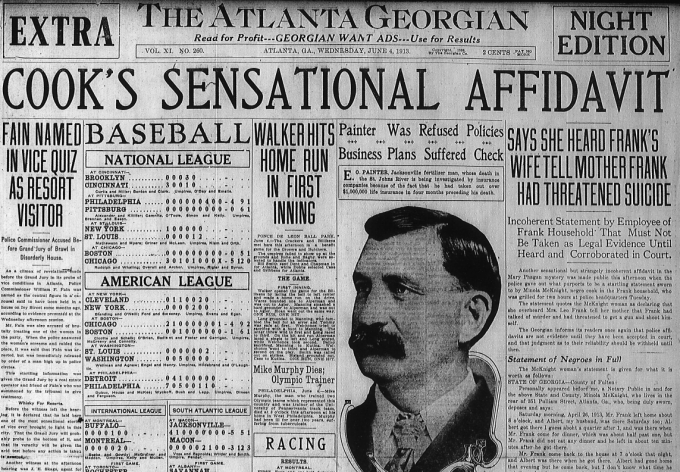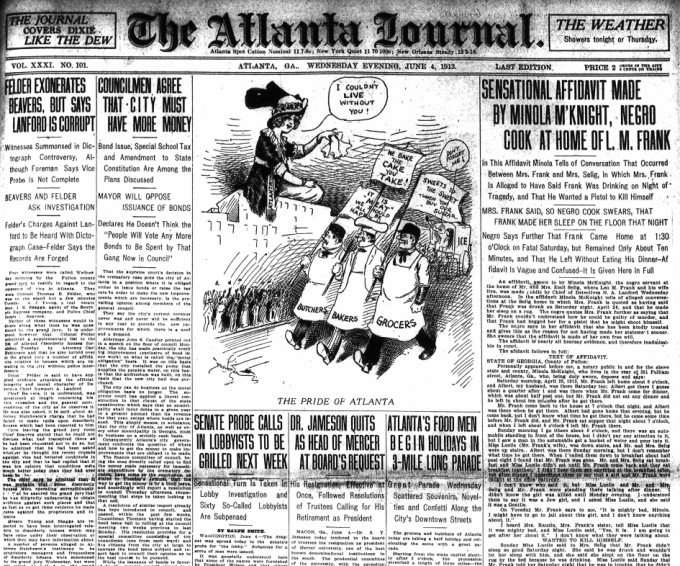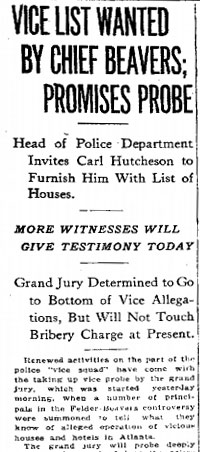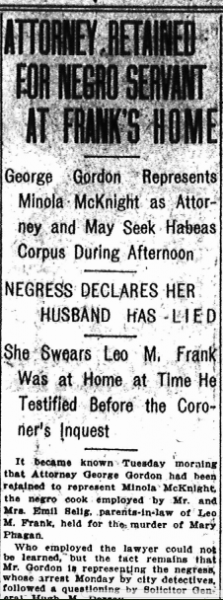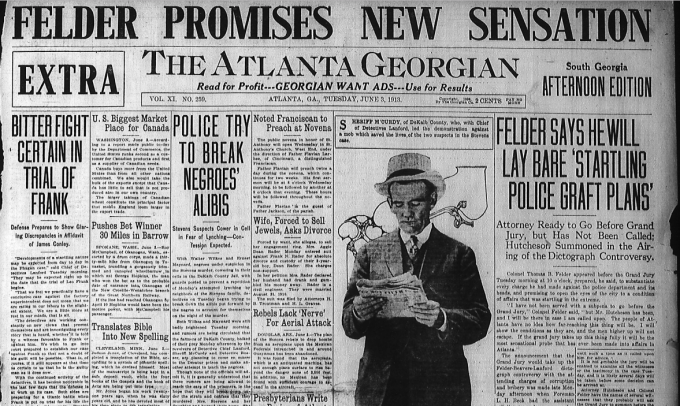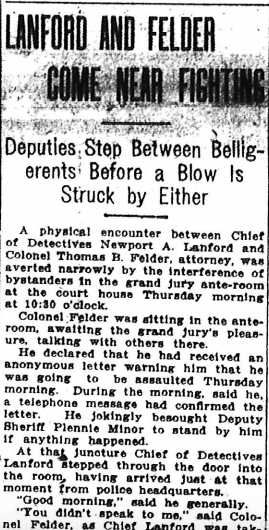 Another in our series of new transcriptions of contemporary articles on the Leo Frank case.
Another in our series of new transcriptions of contemporary articles on the Leo Frank case.
Atlanta Journal
Thursday, June 5th, 1913
Deputies Step Between Belligerents Before a Blow Is Struck by Either
A physical encounter between Chief of Detectives Newport A. Lanford and Colonel Thomas B. Felder, attorney, was averted narrowly by the interference of bystanders in the grand jury ante-room at the court house Thursday morning at 10:30 o’clock.
Colonel Felder was sitting in the ante-room, awaiting the grand jury’s pleasure, taking with others there.
He declared that he had received an anonymous letter warning him that he was going to be assaulted Thursday morning. During the morning, said he, a telephone message had confirmed the letter. He jokingly besought Deputy Sheriff Plennie Minor to stand by him if anything happened.
At that juncture Chief of Detectives Lanford stepped through the door into the room, having arrived just at that moment from police headquarters.
“Good morning,” said he generally.
“You didn’t speak to me,” said Colonel Felder, as Chief Lanford was taking a chair.
“Walk over here and I’ll speak to you,” said Lanford.
“You come to me. I’m sitting down,” said Mr. Felder.
Chief Lanford walked over to the lawyer. “Get up,” said the chief, “I want you to be standing up.”
Colonel Felder got up, but immediately several outsiders were between them. “Turn them loose!” shouted Colonel Felder, while the chief struggled to get at him. “Turn him loose!” Continue Reading →

